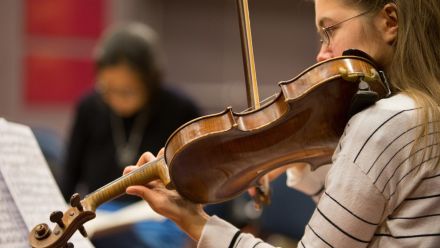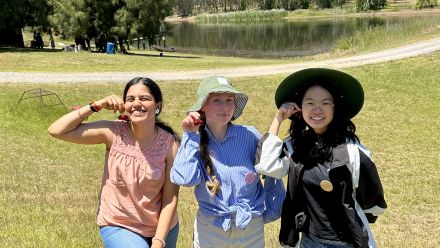If we can identify particular pathways that may be contributing to disease it could lead to more targeted treatments for the individuals
Philanthropists Peter and Susan Yates established the Elizabeth Greene Scholarship program in 2016 to honour Peter's half-sister Elizabeth Greene, who died after a longterm battle with lupus. Lupus is a chronic and incurable autoimmune disease that causes a person's immune system to attack their own body.
Peter Yates AM remembers his half-sister Elizabeth as "extraordinarily well-regarded in the community for her compassion and her dealing with disability". He considers it a privilege to be in a position to assist in developing advancements in treating immune-related diseases.
Peter says that ANU is an attractive destination for world-leading researchers, such as Professor Carola Garcia de Vinuesa, Head of the Department of Immunology and Infectious Disease at the John Curtin School of Medical Research (JCSMR). This is in large part because of its impressive infrastructure and the significant international research collaboration of its scientists.
The inaugural Elizabeth Greene scholarship was awarded to Grant Brown, a medical science graduate who will undertake his PhD at the JCSMR and the Centre for Personalised Immunology (CPI) at ANU. Grant says that he felt privileged to be the first person to be awarded the Scholarship and would research rare genetic mutations in the cause of lupus:
"I'll investigate a range of individuals with lupus to identify genetic mutations that may cause problems with their immune system and cause disease. If we can identify particular pathways that may be contributing to disease it could lead to more targeted treatments for the individuals."
The CPI aims to help people living with immune-related diseases by providing a 'personalised' diagnosis to find more effective treatments for their condition. Students have the opportunity to become uniquely multi-skilled by working on projects across diverse areas.
About 17,000 people in Australia have lupus, and females are nine times more likely to develop the condition.


